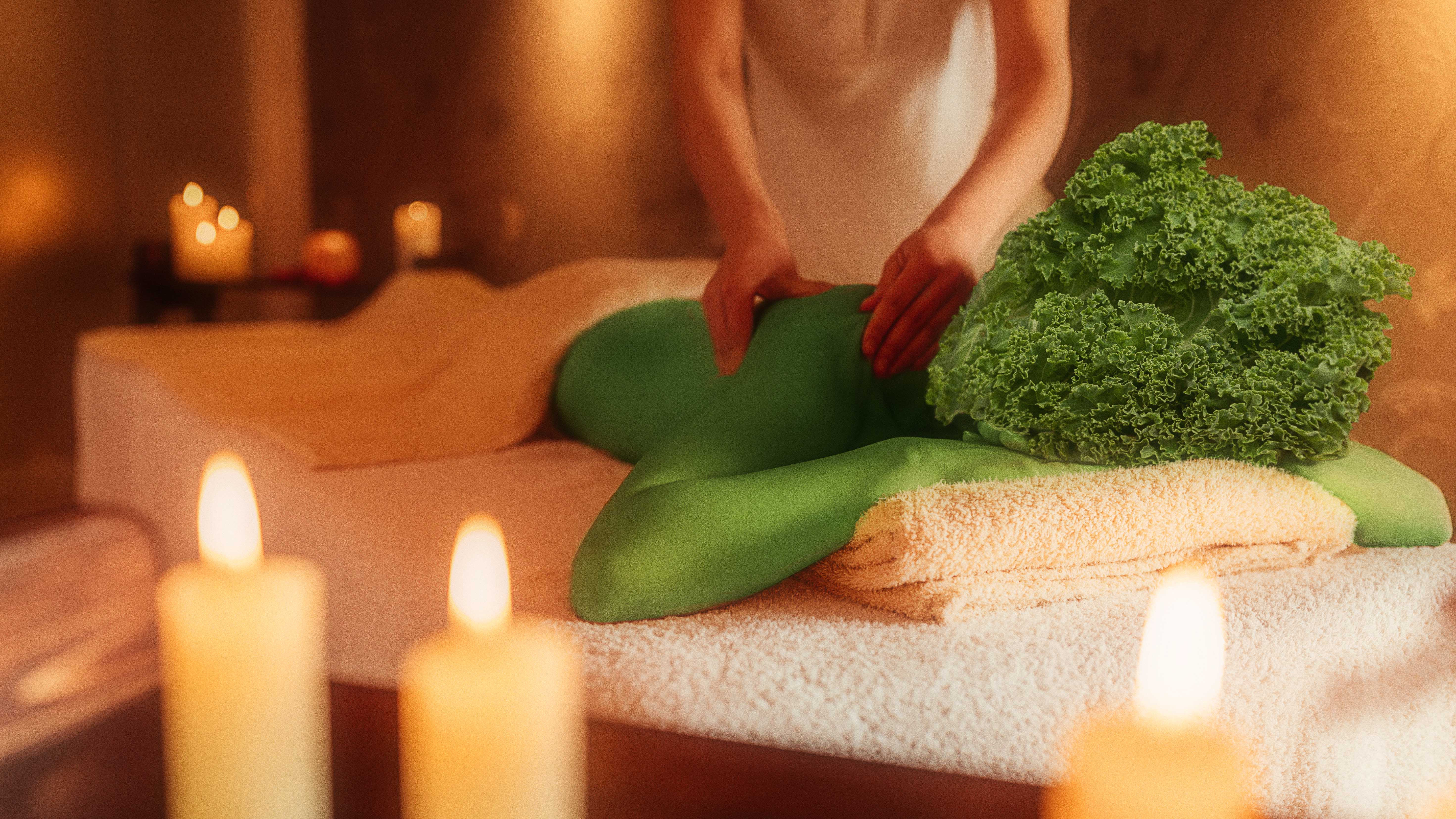Massaging Kale Isn't B.S.
Kale is one of the earliest vegetables to arrive at farmers markets. It's cold-weather tolerant, so gardeners can begin planting it before summery tomatoes and corn. If you've prepared kale before, or plan to this spring, odds are someone has advised you to massage the kale before adding it to your dish. The obvious strangeness of being told to massage a vegetable makes this advice sound like, frankly, some hippie bullshit—but it's not.
Abra Berens, author of the new vegetable-focused book Ruffage and chef at Three Oaks, Michigan's Granor Farm, says there's good reason to tenderly rub kale a bit before you use it, especially if you're eating it raw in a salad. That movement helps break down the plant's cell walls, making the leaves less brittle and stiff. "I just massage it with a little bit of salt. The coarseness of salt combined with agitation from your hands will break some of those cells structures," Berens tells The Takeout. "The salt is hydroscopic, so it will pull moisture out of the cells give you that juiciness."
You don't need to pulverize the kale leaves, just gently work them between your fingers and palms until they feel more tender. That should take between one and five minutes, per the America's Test Kitchen video above. People averse to more rigid kale leaves can also seek out kale that's earlier in its life cycle; much so-called "baby kale" that's sold in grocery stores is grown in greenhouses or hydroponically, which makes its leaves more tender. (Other leafy vegetables, like spinach or chard, don't need to be massaged because their structure isn't as solid. In fact, overworking spinach can make it too soft and gummy.) If you're interested in kale's high nutrient content, but not so much its verdant flavor, Berens suggests a few ways of preparing it, including topping it with raclette cheese or frying it to make cheese-dusted kale chips. And while kale might be seemingly everywhere on menus these days—from kale Caesars to veggie-grain bowls to kale-artichoke dip—that's because it's a nutritious, hardy, easy-to-grow vegetable.
"I feel sort of bad for kale. It got this mega-hype around it and then everyone hates it now because it's an eye roll, it's like Ugg boots," Berens says. "But both are good for what they are! I think kale has taken hold in some culinary ways that I do hope persist."
